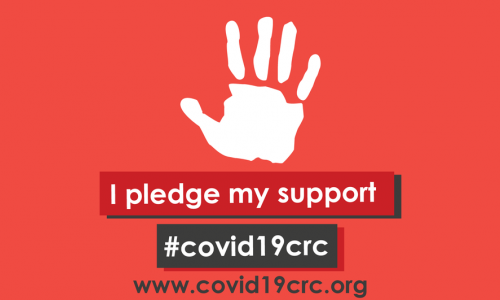Image source: Pixabay/geralt / Centers for Disease Control and Prevention (CDC)/Alissa Eckert, MS; Dan Higgins, MAM
News • Interdisciplinary collaboration
CovidCorpus: Research database to boost battle against the coronavirus
Researchers around the world can tap into a new inter-disciplinary online database of COVID-19 research, allowing them to search for new partners, resources and funding to boost the global battle against the virus.
The international open-access database - accessible via www.covidcorpus.org - for ongoing research activity aims to encourage collaboration and reduce duplication between researchers across all academic disciplines working on COVID-19 research. Through its easy-to-use interface, the database will allow researchers and funders around the globe to coordinate, collaborate and network to help shape the most effective and efficient response to COVID-19 and its many impacts.
Fighting COVID-19 requires the academic community to share ideas early in the research process and avoid duplication. If there was ever a time to embrace openness in research culture, it is surely now
Tim Softley
University of Birmingham experts in Computer Science and Medicine worked with the Institute for Global Innovation to create the database, which includes all disciplines of research, including health-related, socio-economic, behavioural, educational, cultural, science and technology.
Professor Tim Softley, Pro-Vice-Chancellor for Research and Knowledge Transfer at the University of Birmingham, commented: “Fighting COVID-19 requires the academic community to share ideas early in the research process and avoid duplication. If there was ever a time to embrace openness in research culture, it is surely now. COVID Corpus will play a vital role in reducing duplication of effort and allow researchers from around the world create new partnerships and better understand the SARS-CoV-2 pandemic.”
The portal includes research funded both by external agencies and resources at the University of Birmingham. Users can search for projects, resources or funding calls in a specific discipline or topic or keyword. They can also read about the project and contact the lead investigators, as well as registering their own on-going research projects, resources or funding calls.
Professor Hisham Mehanna, Director of the Institute for Global Innovation and Institute for Advanced Studies, commented: “This is the only online database to capture all research projects related to COVID-19, regardless of academic discipline, funding or location. It will also map the evidence - identifying and publishing gaps in research activity to help direct future research and research funding.”
The portal is curated by volunteer experts from the academic and clinical global community. Users will be able to upload their own contributions of COVID-19 research, which will be approved and published immediately by the curation team. Analytics include a range of statistical, advanced AI based text & data, and visualisation tools. The portal also gives users the opportunity to network with other researchers to help encourage further collaboration.
Portal Developers and University of Birmingham researchers Mohammed Bahja and Gibran Butt commented: “Until now, similar databases have been restricted to a specific discipline, such as medicine, or limited only to research funded by the database owner. COVID Corpus amalgamates data from these databases to provide a broad and comprehensive resource for all COVID-19 research.”
The portal links to existing databases such as the Academy of Medical Sciences and UKCDR, meaning it already has over 2,500 projects registered at the point of going live. The UK Collective for Development Research, GLOPID-R, and the Academy of Medical Sciences are contributing the data that their databases hold, and other databases are also considering joining.
Source: University of Birmingham
14.10.2020











